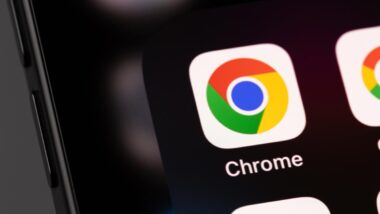Match Google Fees Lawsuit Overview:
- Who: Match Group, owner of Tinder and OkCupid, filed a lawsuit against Google.
- Why: Match claims Google illegally built a monopoly on in-app purchases by charging app developers exorbitant fees.
- Where: The lawsuit was filed in California federal court.
Online dating company Match Group, which owns Tinder and OkCupid, among others, filed a hefty lawsuit against Google for its anticompetitive practices, such as allegedly charging app developers “extortionate” fees for in-app purchases.
The lawsuit, filed by Match and its subsidiaries, alleges Google and its affiliates prevent competition from Android app developers by requiring them to use Google Play Billing for in-app purchases, which charges the developer up to 30% in fees.
The lawsuit also calls out Google’s pilot program that would allow developers to offer users a “choice” of billing platforms. However, Google alone determines who can participate in the program, indicating the program was created as “a political stunt designed to thwart regulatory scrutiny,” the complaint claims.
Match Claims Google Holds App Developers ‘Hostage’ with Fee Structure
Match claims that Google lured app developers to its Android systems with the promise of “an open ecosystem, flexibility and a focus on the user” but now holds Match and other developers “hostage.”
“Google illegally monopolized the market for distributing apps on Android devices with its Google Play Store,” the complaint says.
Google Play Billing charges between 15% and 30% in fees for “digital goods or services,” but what is included in this category is “ill-defined and arbitrarily applied,” according to court documents. Match argues Google wrongfully charged these fees because Match’s dating apps enable users to meet in person, much like ride-sharing apps, which are exempt from the fees.
Not only does Google get “an ever-greater cut of the billions of dollars users spend each year on Android apps,” but it also collects “massive volumes of user data” it can then monetize, the complaint claims.
Consumers downloaded Android apps from Google Play more than 111 billion times in 2021, generating almost $48 billion in revenue, according to court documents.
Match seeks a temporary, preliminary and permanent injunction barring Google from its allegedly anti-competitive conduct; compensatory, consequential and punitive damages; and attorneys’ costs.
What do you think of Google’s fee policies for Android app developers? Sound off in the comments section below.
The Google In-App Fees Lawsuit is Match Group LLC, et al. v. Google LLC, et al., Case No. 3:22-cv-02746, in the U.S. District Court for the Northern District of California.
Don’t Miss Out!
Check out our list of Class Action Lawsuits and Class Action Settlements you may qualify to join!
Read About More Class Action Lawsuits & Class Action Settlements:















24 thoughts onMatch Lawsuit Alleges Google Charges ‘Extortionate’ In-App Fees
Please add me.
Add me
please add me